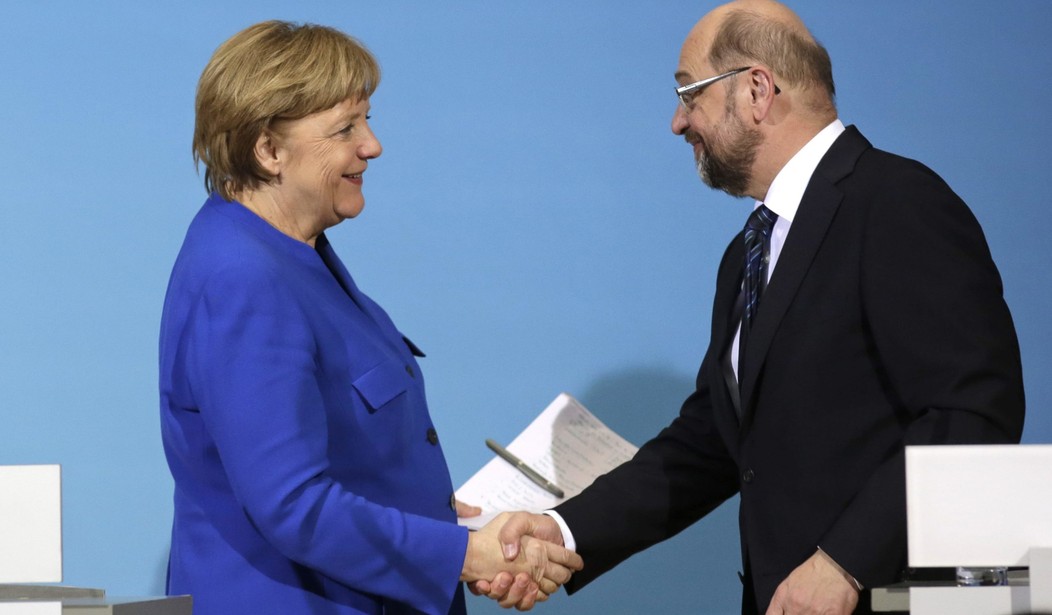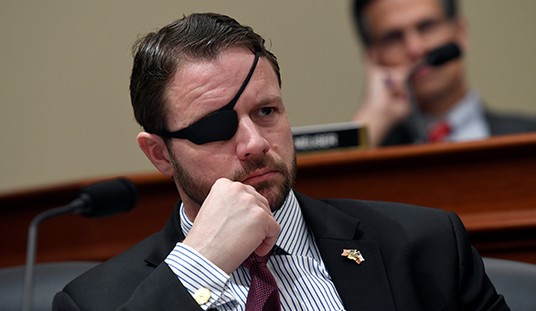Sunday, the German Social Democratic Party (SPD) came together in order to vote on the question of whether their party should join a “Grand Coalition” with Angela Merkel’s Christian Democrats (CDU). Although SPD leader Martin Schulz didn’t have an easy job convincing his fellow party members to support this coalition, the majority eventually sided with him: 362 SPDers voters for this “GroKo” (Grosse Koalition), 279 voted against it.
During the negotiations with Merkel, Schulz — who is the former Speaker of the European Parliament — demanded that the German chancellor support his dream of a “United States of Europe.” He aims to systematically transfer wealth from the richer northern countries to the poorer southern countries. Although the people of those northern countries aren’t down with that idea, Schulz got his way in the negotiations. As I reported for PJ Media last week while quoting Bloomberg:
“The talks collapsed prompting Merkel to negotiate with the SPD’s leader Martin Schulz, a committed federalist who has been president of the European Parliament. This was excellent news for anyone who believes the currency union has to move closer together in order to thrive: Germany made important concessions at the height of the sovereign debt crisis, for example agreeing to set up a euro-zone rescue fund (the European Stability Mechanism). However, in the last few years, Berlin has been resistant to further risk-sharing, insisting that governments should first reduce their budget deficits and prompt banks to clean up their balance sheets. A three-way deal with the FDP and the Greens would have meant more of the same.”
Last week’s position paper is, Bloomberg continues, “a quantum leap compared to Lindner’s intention.” Sadly, that’s not an exaggeration. The paper talks about the need to “emphasize specific budgetary resources for economic stabilization, social convergence, and support for structural reforms in the eurozone,” and even about setting up “an investment budget for the eurozone.” This fund could be managed by the European Parliament. This is the same Parliament only very few Europeans actually take the time to vote for, believing it to be either an irrelevant institution or a “too far from my bed” show.
It is, I’m afraid, a done deal now. Germany will be governed by a nightmarish coalition between two EU- and mass immigration-loving parties. German voters may have wanted less Europe and less migration, but what they’ve gotten is the German version of Emmanuel Macron’s Europhile cabinet.
That’s bad enough in itself, but what’s even worse is that the rest of northwestern Europe will suffer because of it. After all, Germany and France are by far the two most powerful countries in the EU after Brexit. If they join forces, the rest of the EU member states can only obey.
The result will be the death of national sovereignty in Europe.
Es lebe Deutschland, vive La France!









Join the conversation as a VIP Member